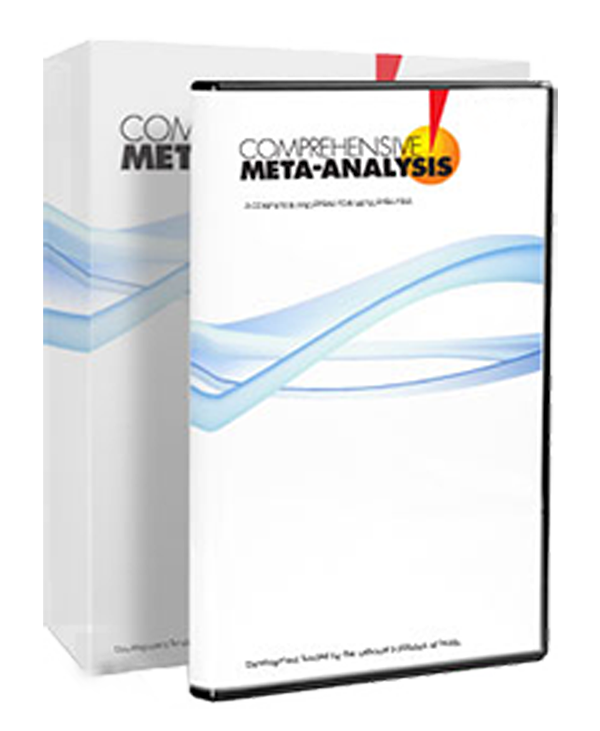Version 2 software
Important: Version 2 Users
If you own V2 and need to reinstall it on a new machine,
send us a note at [email protected] and we'll send a link to V2.
Comprehensive Meta-Analysis

Comprehensive Meta-Analysis (CMA) is a powerful computer program for meta-analysis. The program combines ease of use with a wide array of computational options and sophisticated graphics.

"My experience with Comprehensive Meta‐analysis is highly positive. The spreadsheet interfaces for data entry are very intuitive. They handle an astonishing wide array of indices and formats for effect sizes, including the possibility of entering them in the spreadsheet by copy‐and‐paste. The exploratory phase is easily performed thanks to a variety of facilities, as cumulative meta‐analysis, sensitivity analysis by the “one‐study‐removed” procedure, and subgroup analysis, among others. It covers all basic fixed and random effect models and provides high‐quality graphical outputs for reports. The tutorial and the manual are really helpful and friendly. In short, Comprehensive Meta‐analysis is my favorite tool both for performing and teaching meta‐analysis."
Professor Juan Botella - Autonomous University of Madrid
"Our group has recently begun to conduct meta‐analyses within our area of research, i.e. psychooncology and health psychology, and we have found CMA extremely useful. CMA distinguishes itself from other available meta‐analysis software by the various options to explore and adjust for possible publication bias, as well as by providing several options to explore possible moderators, not only categorical but also continuous. We encourage our PhD students to conduct quantitative systematic reviews as a part of their dissertation whenever possible. The clear menu‐driven approach of CMA makes it easy to use for beginners, so that they can focus their energy on the analytical aspects of metaanalysis, rather than on the technical issues of using the software."
Bobby (Robert) Zachariae - Professor, dr.med., Psycho‐oncology Research Unit, Aarhus University Hospital, Denmark